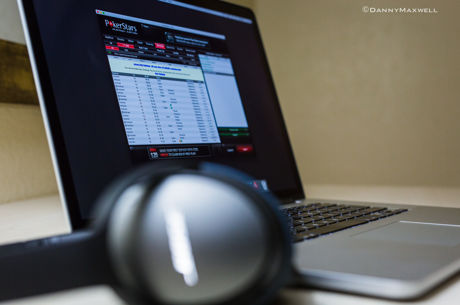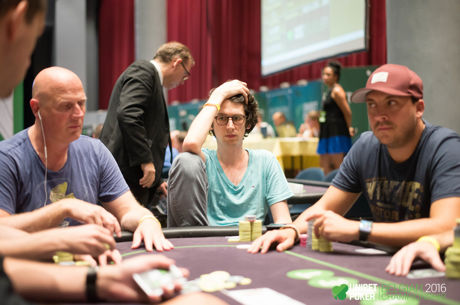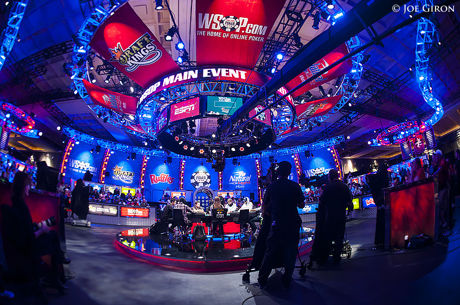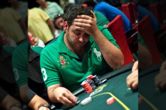Outplaying Good Players in Small Stakes Cash Games
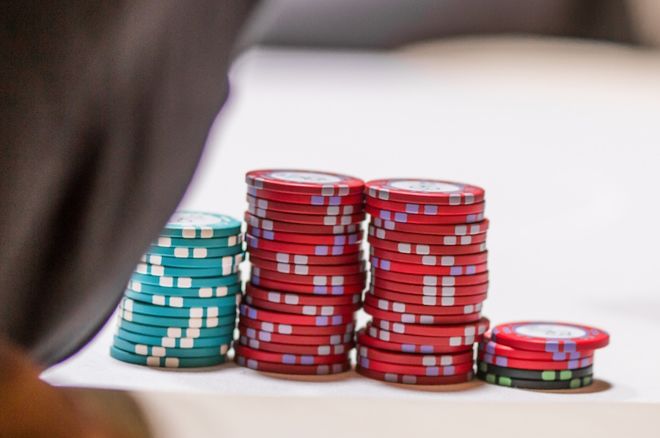
A lot of people like to scoff at small stakes cash games since they are often full of beginners or people who really don't know what they are doing yet. But the truth is in today's games even at very lowest limits there are sometimes very competent good players to be found.
Now, of course, in whatever game you find yourself, you should be focusing on finding the bad players and exploiting their weaknesses. But at some point you will have to get involved with these more skilled opponents.
For that reason, in this article I am going to discuss a few of the ways to combat and even outplay some of the better players that you will encounter at the lower stakes.
1. Keep the Good Players on Your Right
The first thing you should do in order to have more success against better players in your games is more of a logistical approach than a strategy �� namely, to try as best as you can to keep these better players on your right instead of your left.
The power of position in poker is so important. So much so that given two equally skilled opponents, the one who has direct position on the other will have a massive long term edge.
This is because the player with position will get to act last in nearly every hand. Such players will be able to make their value bets and bluffs while already having information regarding what you think of your hand. You, on the other hand, will always be playing in the dark.
This is simply too big of a mountain to climb when dealing with somebody who is close to or above your skill level. Always try to keep these players on your right.
2. Discover the Imbalances in Their Play
From a strategical point of view, in poker we win by finding imbalances in our opponent's play and then exploiting those imbalances in a logical way.
For instance, if somebody is three-betting 10 percent or more of the time preflop, then that player clearly has several mediocre hands and even some outright bluffs in that three-betting range, because nobody gets dealt premium hands this often.
You take advantage of this imbalance by four-betting them more lightly or flatting them more widely, especially in position with the intention of taking the pot away after the flop.
Versus somebody who is only three-betting 2 percent of the time, though, this approach would be very costly. You would instead want to tighten up your four-betting range to literally just the nuts and flat in position with some speculative hands if the implied odds are good.
The great thing about small stakes cash games is that even the very best players will have imbalances in their games. Perhaps these imbalances will show up in other areas such as contiuation betting, barreling, floating, or bluffing the river either too much or too little.
Once you discover these weaknesses in their play, then there is always an easy logical counter to exploit them.
3. Float and Take Away More Pots on Later Streets
At the risk of suggesting that we play a little bit imbalanced against the better regs ourselves, it is important to fight for pots a little bit more against them, especially on the turn and the river. It is best to do this in position (for the reasons already discussed above) and often after floating the flop.
The reason why this strategy works so well is because another major weakness of all players at the lower stakes, including the good ones, is not truly wanting to fight for pots.
That is, when you can apply enough pressure and their entire stack could be at risk, they will often back down without a very strong hand. And we all know how hard it is to make a very strong hand in this game.
Therefore it can be a good idea to float the flop with lots of hands that have any sort of equity such as a gutshot, middle pair, bottom pair, or even ace-high. Then on the turn if they fire again you can choose to float again and test their will on the river. You can also use the often under-utilized but highly effective turn semi-bluff raise.
If they simply give up and check to you on the turn, then you can of course just make a bet and often take it down.
Always remember that most of the time nobody really has anything very good in hold'em. Use the power of position to its full advantage �� especially against the better players �� by fighting for more pots on later streets when nobody has anything very good.
4. Try to Tilt the Better Players
The last strategy is less technical and has more to do with the mental side of the game. You can sit around studying advanced theory for years, but at the end of the day good players don't make very many mistakes. This is why they are difficult to beat.
However, the great thing about the lower limits is that almost everybody has serious leaks when it comes to the mental game. By this I mean that players at these limits don't deal with adversity as well as higher limit players. They tend to take it personally, "steam," and let it affect their game.
So how do you put somebody on tilt? Well, you can do this by having a good run of cards against them. But relying on a streak of luck to get somebody tilted is a pretty weak strategy for obvious reasons.
The main way to tilt somebody is by taking it into your own hands to "get under their skin," so to speak. I'm not referring to chatbox antics or other etiquette-breaching tactics. I'm talking about tilting opponents by your play �� that is, by sticking around in more hands, fighting for more pots like I suggested above, and raising them constantly preflop as well.
A lot of the time I will just pick a specific good regular on whom I happen to have position and try to go out of my way to fight for every pot and be as annoying as possible. This is done with the sole intention of trying to tilt the player or at least get that particular opponent actively thinking about me.
It should be noted I will only do this for one particular session and revert to normal play in all future sessions. If you try to play like a maniac against the better regs all the time, then sooner or later you will be the one getting exploited.
Final Thoughts
There really is no sure-fire method for beating good poker players. You will never "crush" them because they simply do not make enough mistakes to allow this to happen. This is why I am such a huge proponent of table selection and keeping things simple by playing against the recreational players as often as possible.
However, even against the better regulars at the small stakes you can improve your odds by getting them on your right and even trying to tilt them with some overaggressive or annoying play during a particular session.
You should also look to find out where the imbalances in their play are and fight for a few more pots on the later streets against them, even when you don't have much of a hand. Follow these strategies and you'll find you can lose less and even profit against these stronger small stakes opponents.
Nathan "BlackRain79" Williams is the author of the popular micro stakes strategy books Crushing the Microstakes and Modern Small Stakes. He also blogs regularly about all things related to the micros over at www.blackrain79.com.
Be sure to complete your PokerNews experience by checking out an overview of our mobile and tablet apps here. Stay on top of the poker world from your phone with our mobile iOS and Android app, or fire up our iPad app on your tablet. You can also update your own chip counts from poker tournaments around ?the world with MyStack on both Android and iOS.

